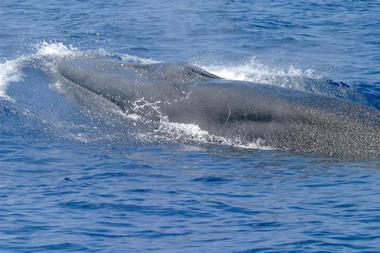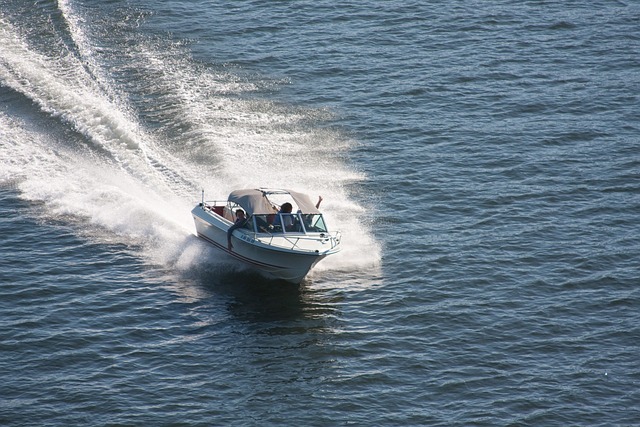Calls for Vessel Speed Restriction in US Gulf of Mexico to Protect the Rice’s Whale

believe there are only 50 in existence. Credit NOAA Fisheries
By Tony Esposito
A public comment period is open until 6 July on another petition to the US National Oceanic and Atmospheric Administration (NOAA) that would limit vessel speed limits, this time in the US Gulf of Mexico in specific breeding grounds of the Rice’s Whale, a species only identified in 2003, of which researchers believe there are only 50 in existence.
While NOAA has not yet established a rule, the measure mirrors in many ways a proposal that would shutdown much of the US eastern seaboard to recreational boating traffic aimed at protecting the North Atlantic right whale, though is not nearly as sweeping.
In what National Marine Manufacturing Association (NMMA) president Frank Hugelmeyer has referred to as a “weaponization of the US Endangered Species Act,” petitioners have asked NOAA for a 10kt speed limit the Rice’s whale’s “core habitat area” from roughly Pensacola, Florida to south of Tampa, Florida – more than 400 nautical miles.
In addition, the petition asks for no vessel transits at night; a pre-filed navigation plan to be filed with NOAA – or use an automatic identification system (AIS), and use of trained visual observers.

“The recreational boating and fishing community is committed to marine wildlife protection and ensuring our cherished waters are safe for wildlife, including the Rice’s whale, and boaters alike. A blanket approach such as vessel speed restrictions covering large swaths of the Gulf will do little to address the protection of the Rice’s whale population and puts recreational boaters, anglers, and communities that rely on economic activity from these industries at risk,” said Frank Hugelmeyer, NMMA president in a statement released by the organization today.
“As NOAA considers its next steps on addressing the Rice’s whale recovery and protection, the boating and fishing industry looks forward to working alongside the agency, and all impacted stakeholders, to determine a holistic approach to protect this vulnerable species while maintaining access along the Gulf Coast.”
No such advance consultation occurred with the right whale proposal, the subject of much consternation by the industry and members of Congress at a recent hearing on Capitol Hill in a roundabout effort to, if not slow the process assure that stakeholders’ concerns are represented in whatever final rule NOAA issues for the Atlantic.
“Once again, proponents of vessel speed restrictions are acting as if small recreational boats are the same as large cargo ships. They are not,” said Jeff Angers, president of the Center for Sportfishing Policy in the statement. “We invite NOAA to join with us in identifying 21st Century technological advances that can help tell mariners where whales are instead of effectively barring public access to America’s marine waters.”
The Whales and Vessel Safety (WAVS) taskforce is a group of interested parties looking for and developing such technologies.
Stakeholders are asking NOAA to forego any rule making as the petitioners filed to put forth any evidence that recreational boating poses a risk to the Rice’s whale, fails to propose any action to address the greatest source of mortality to the species and that NOAA has failed to engage directly with the recreational boating and fishing industry on possible solutions.
The NMMA’s Boating United web page has instructions on filing input with NOAA, or at NOAA’s website.